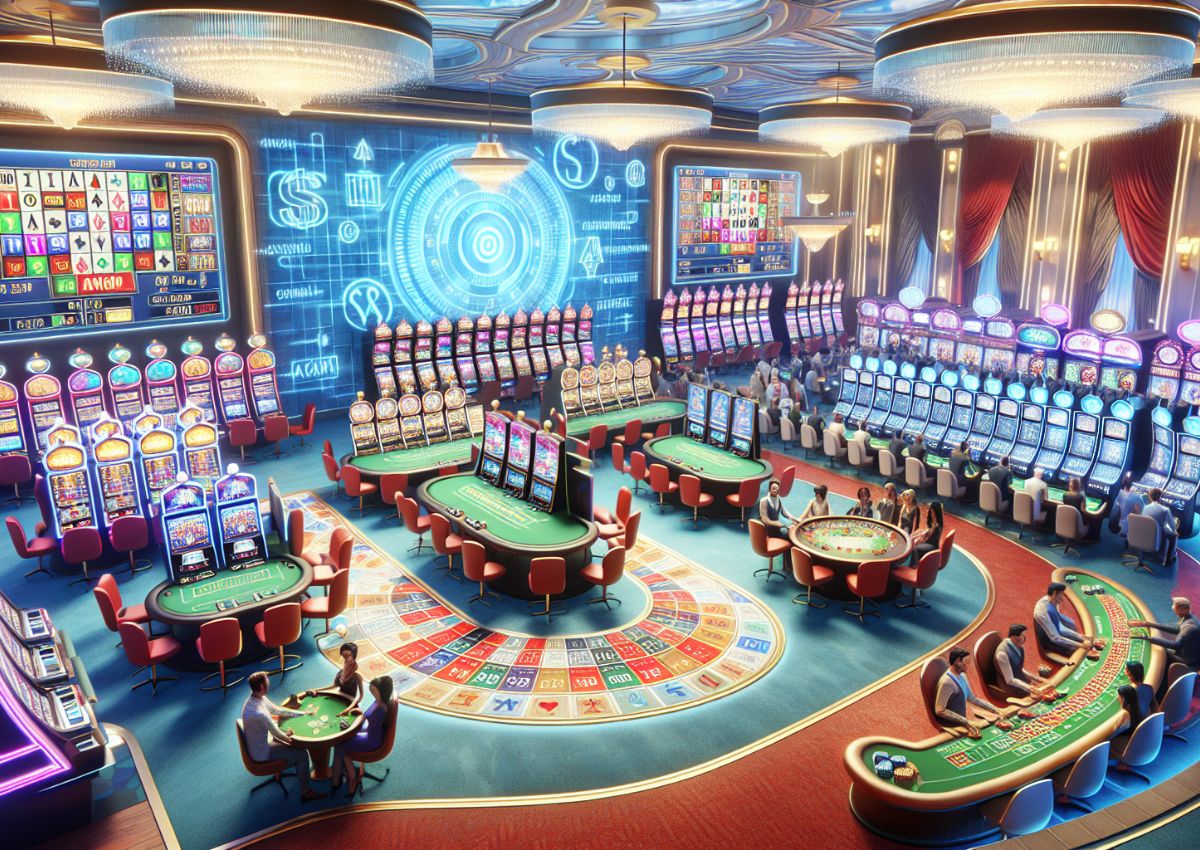
Casino entertainment have long been an integral part of human culture, delivering not just entertainment but a captivating reflection of our dreams, dreams, and anxieties. From the turning reels of a slot machine to the strategic gameplay of poker, these games encapsulate a variety of human emotions and experiences. At their core, casino games are more than a chance to earn cash; they are a snapshot of life itself, where danger and gain converge and fortunes can change in an instant.
As players assemble around tables or sit in front of vibrantly illuminated machines, they take part in a ritual that transcends mere playing. These games mirror our innate desires for social interaction, adventure, and the search for fortune. They also reveal deeper truths about human behavior, such as our relationship with chance and the adrenaline of uncertainty. casinos not on Gamstop In exploring casino games, we uncover not only the nuances of play but also the complex weave of the human journey, showcasing our intertwining narratives of goal and reality.
The Mind Behind Gambling
Wagering is deeply rooted in human psychology, tapping into various feelings and desires. The thrill of risk-taking is a core aspect that attracts participants, be it the thrill of spinning a roulette or the anticipation of drawing a winning card in a poker game. This rush of adrenaline is frequently likened to other forms of excitement, as the uncertainty of outcomes elicits a distinct psychological response. Players often become entranced by the possibility of striking it rich, leading to an almost magnetic draw toward gambling games.
Another, an essential component of the psychology behind gambling is the concept of hope and aspiration. Players often indulge in dreams of financial freedom and the opulent lifestyle that can follow winning. This hope fuels their continued participation in gambling, as it provides a sense of purpose and the conviction that a life-changing win could be just one bet away. The narrative of beating the odds and finding success resonates with many, reinforcing their commitment to play and engage with these games.
Lastly, social aspects play a significant role in gambling psychology. Gambling venues are designed to foster social interaction, where players gather to share the journey of wins and losses. This shared aspect not only enhances enjoyment but also influences behavior, as individuals often mimic the actions of others in their vicinity. The social validation found in mutual thrill can magnify the emotional experience, making casino games a mirror of not just personal desires but also shared involvement within the gambling community.
### Risk and Reward: A Double-Edged Sword
Casino games embody the subtle balance between risk and reward that resonates deeply with human psychology. The thrill of placing a wager is often accompanied by a jolt of energy, as participants are confronted with the chance of a huge payout, yet fully aware of the risk to suffer losses. This twofold experience reflects a essential aspect of life: the paths we choose often come with built-in risks, and the quest for benefit can push us to embrace risks we might not normally consider. In this way, casino games mirror real-world decisions, enticing players to gamble not just their money, but also their aspirations.
The allure of jackpot prizes and payouts fuels a sense of optimism, inspiring gamblers to imagine a better future that could manifest from a fortunate turn of the roulette or turn of a card. This positive outlook can motivate individuals to engage in greater risks, encouraging them to push their boundaries in search of monetary success. However, just as in life, the outcomes of these decisions can lead to both victory and failure. The stories of both jackpot winners and those who have faced losses everything at the tables demonstrate the random nature of luck and its impactful repercussions on our existence.
Ultimately, the interaction of engaging with gambling activities serves as a strong reminder of the nature of humanity. Every session played is loaded with the tension of risk, as players weigh the rewards against the risks. This dynamic not only highlights the thrill that comes with gambling but also reveals the vulnerabilities that come with the longing for more. As we navigate the challenges of decision-making and consequence in both the casino and in life, we find that the search for benefit shapes our identities and experiences in significant manners.
Community and Solitude in Gambling Environment
Gambling culture is a distinct mix of communal engagement and individual endeavor, reflecting the contrasts of human experience. Gamblers often come together around games, sharing in the thrill of the game, celebrating wins, and sympathizing over losses. This social aspect is vital, as it fosters a sense of belonging and camaraderie among varied groups of people. Regular visitors to casinos may build friendships and establish routines, turning the casino into a second home where they feel linked to a larger community of players.
However, the attraction of casino activities can also result to isolation. As individuals become engrossed in the thrill of playing, they may isolate from personal connections or fail to interact with the world outside the casino. For some, the search of a windfall can overshadow genuine relationships, leading to isolation. The situation of being among others yet feeling solitary is not uncommon, as the focus shifts from collective fun to the individual concerns of each player’s path.
This interplay of society and solitude creates a vivid tapestry that defines gaming atmosphere. It showcases the complexity of social interactions, where joy and sorrow coexist. Gambling venues serve as both a refuge for social interaction and a stage for individual struggles, illustrating how intimately entwined our desire for connection and the individual quest for wealth can be. In navigating this landscape, players confront their own stories—seeking both the rush of the game and the fellowship of other players, ultimately mirroring the broader spectrum of human experience.

